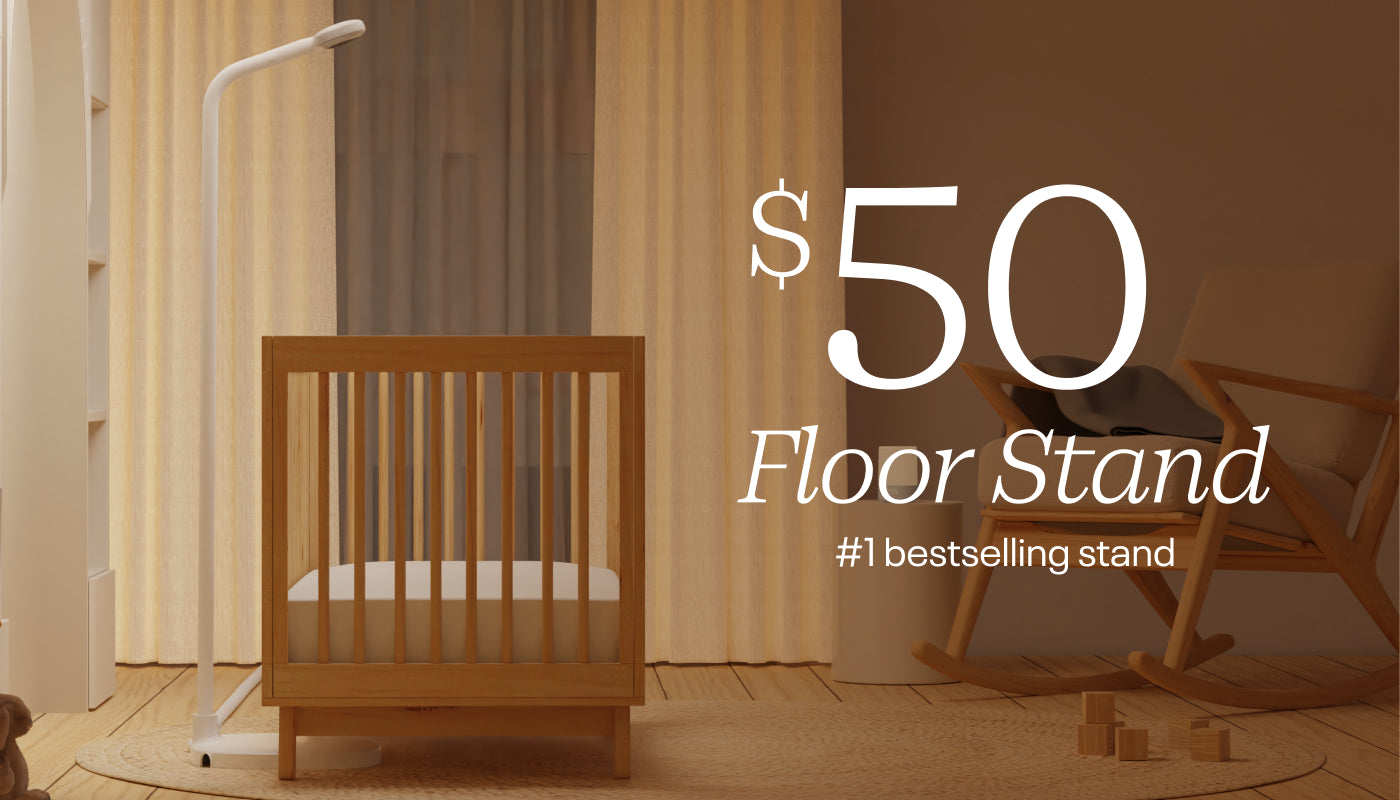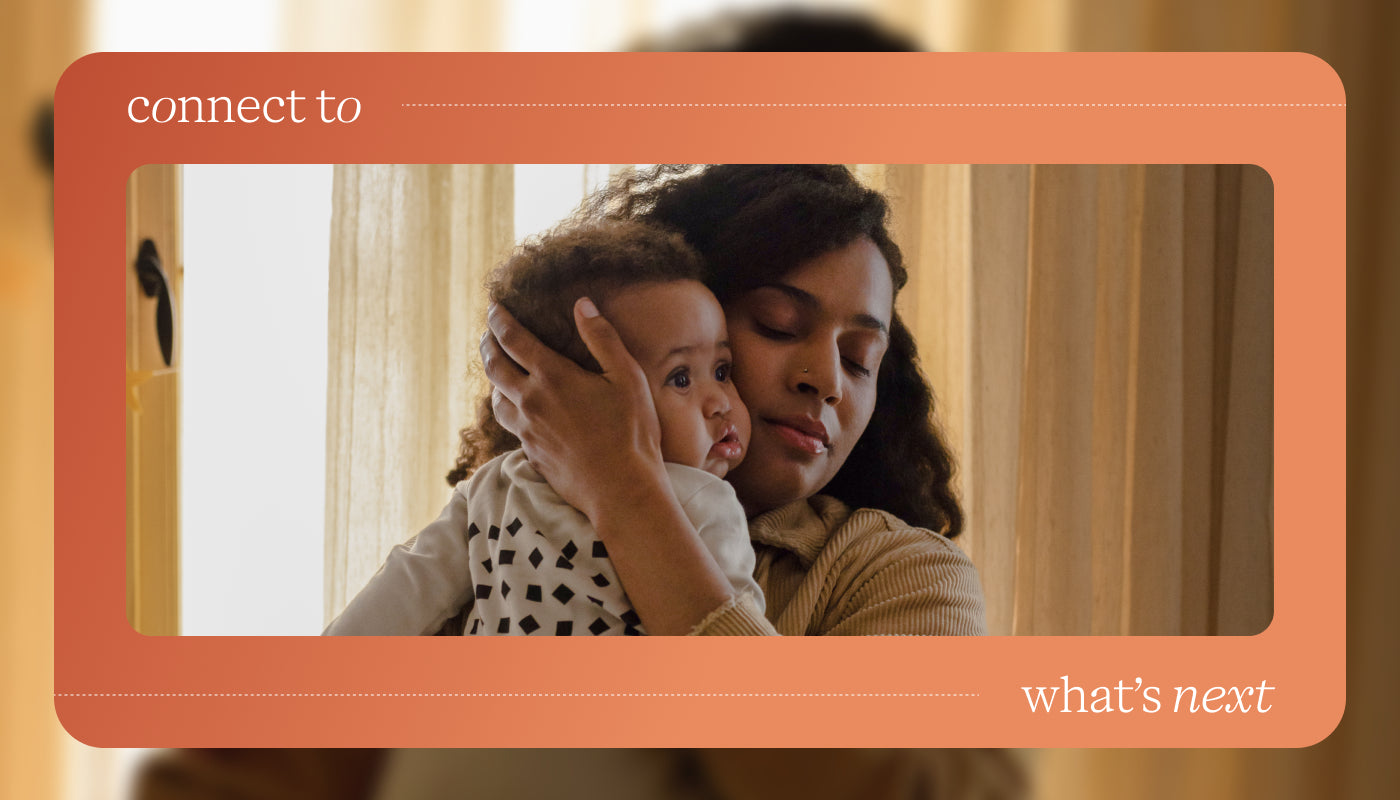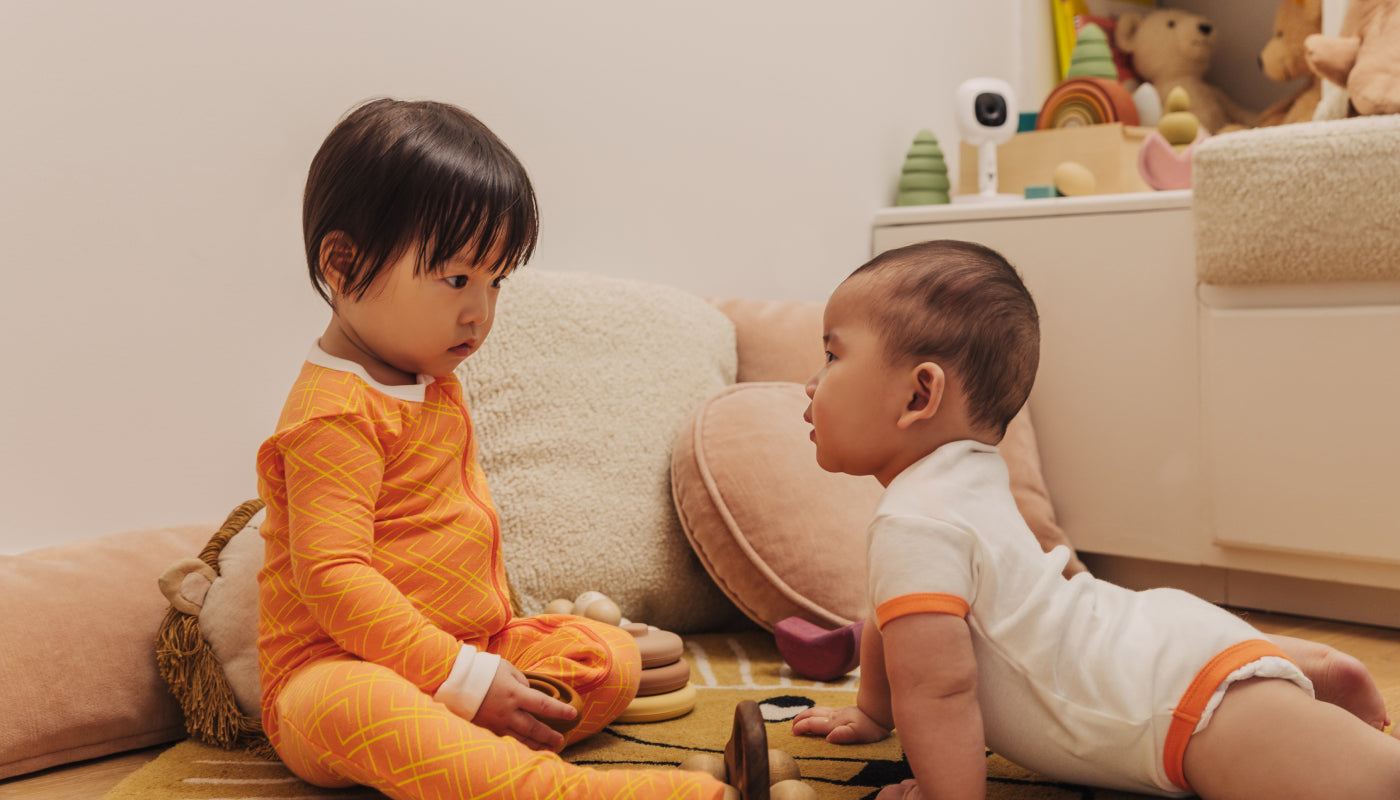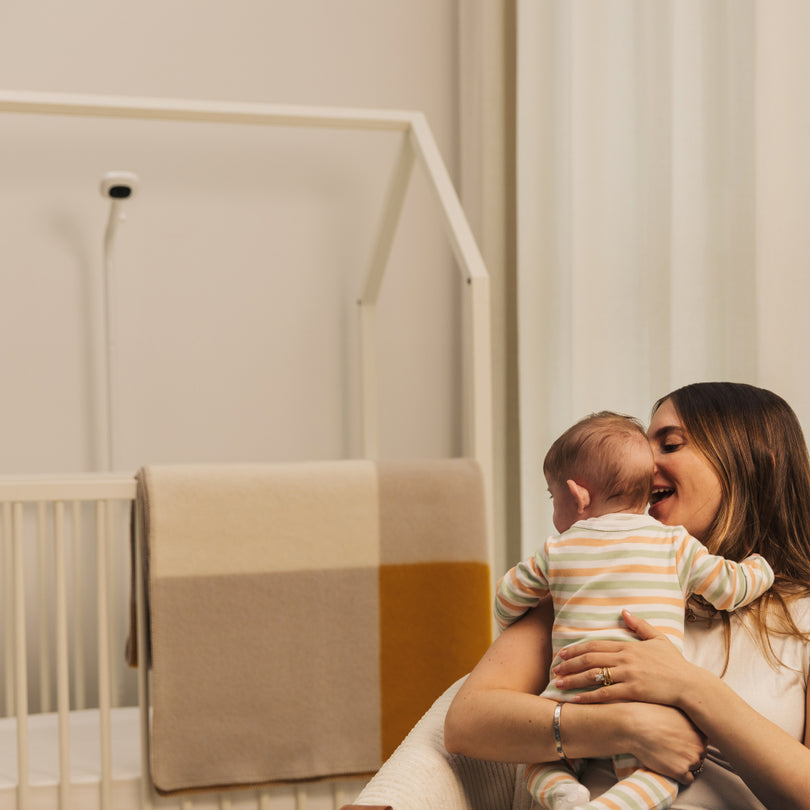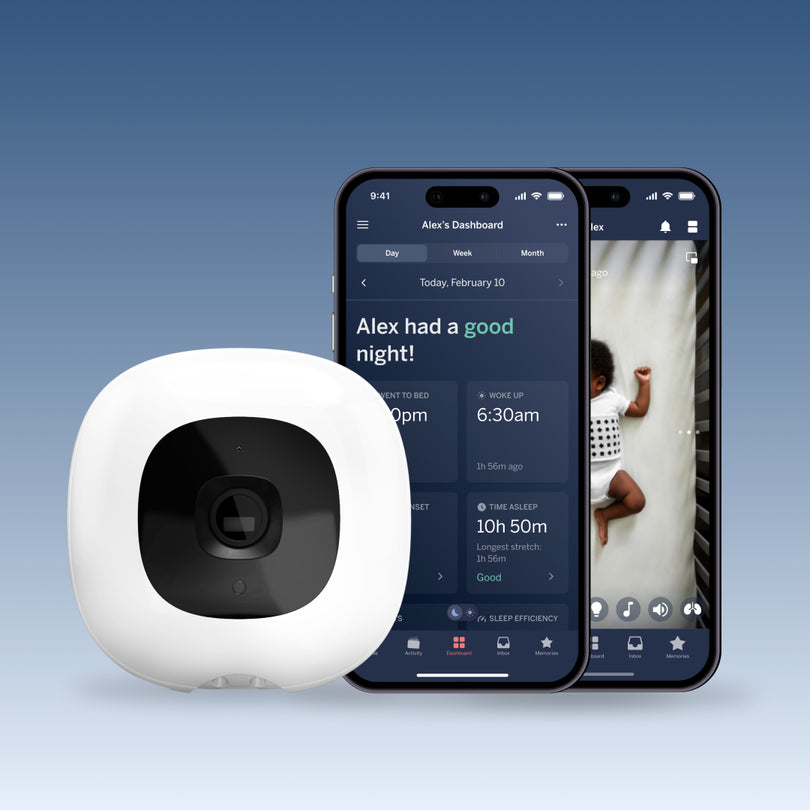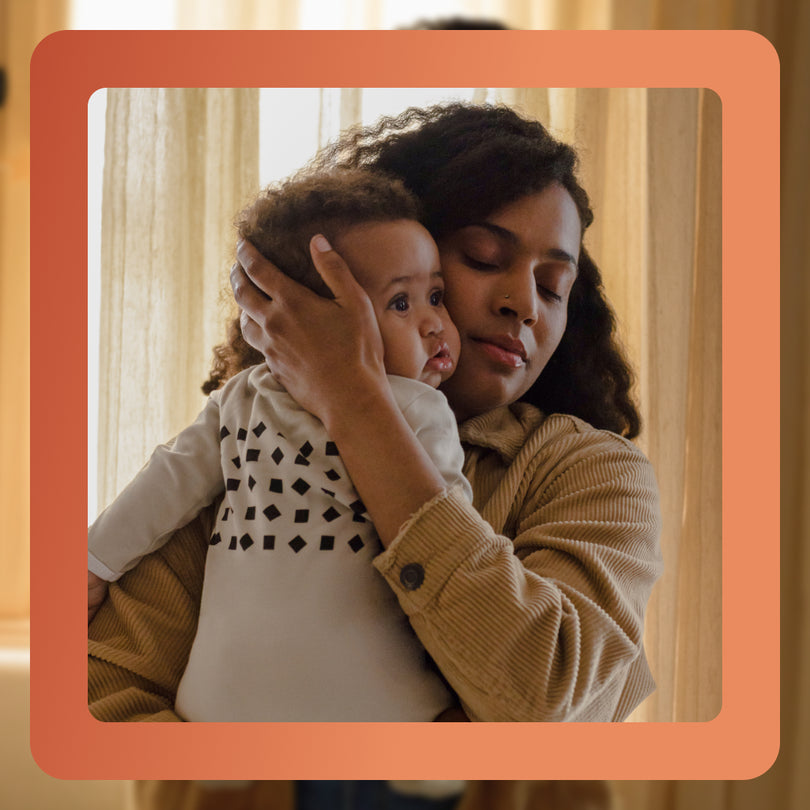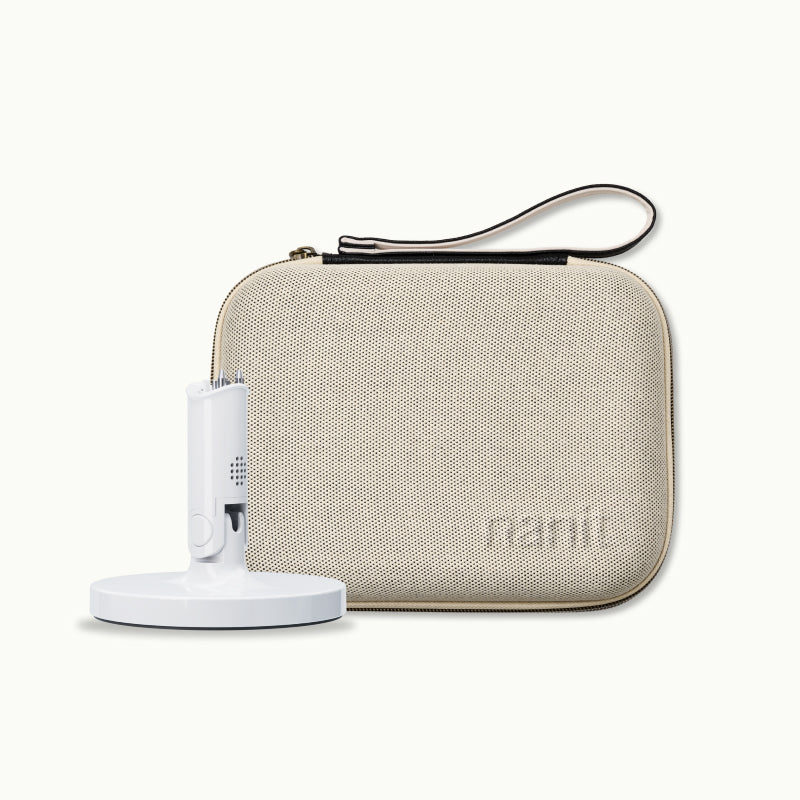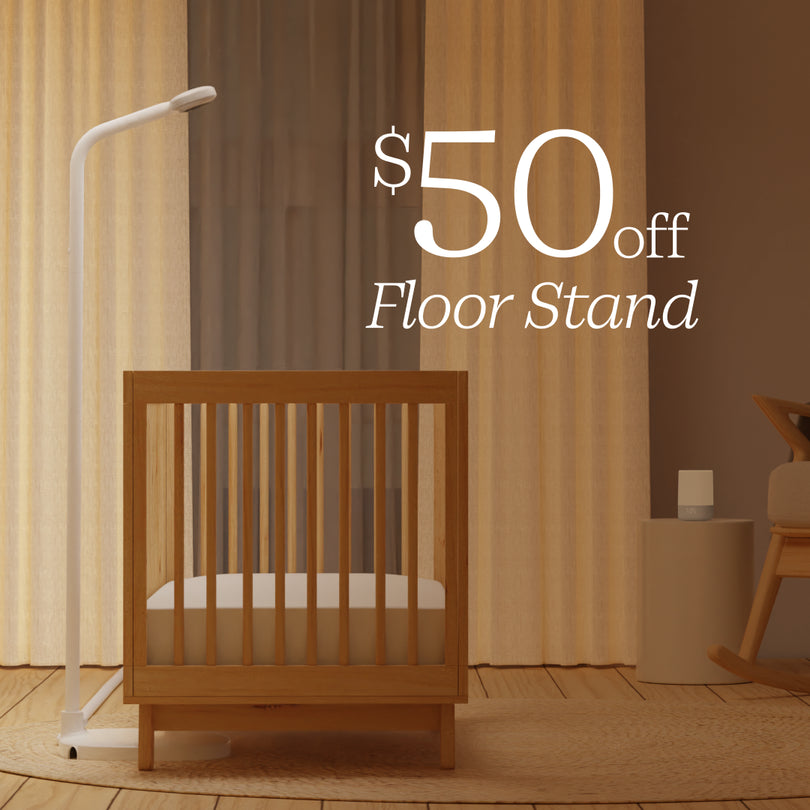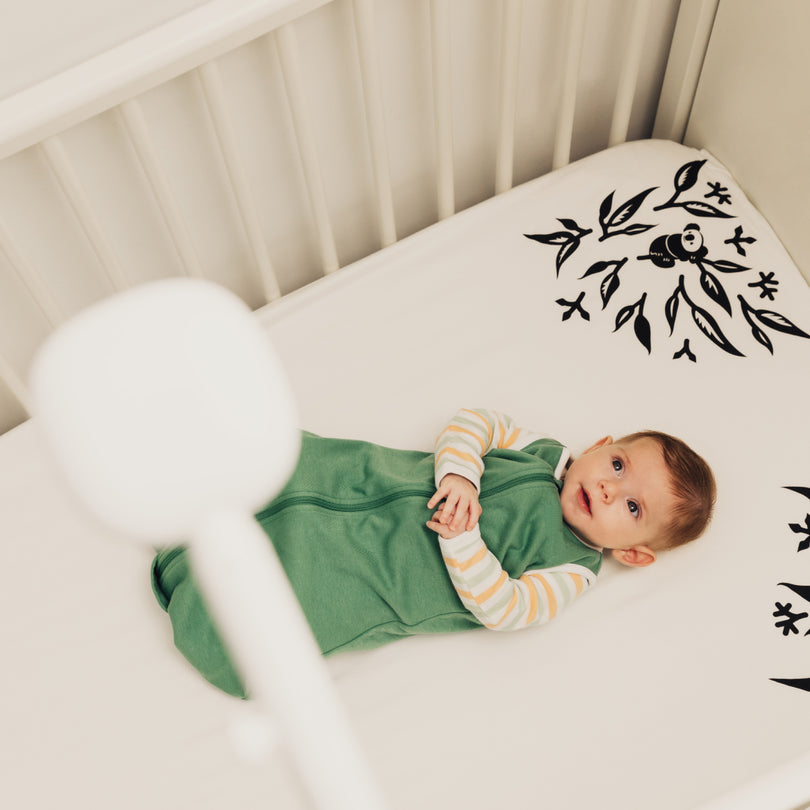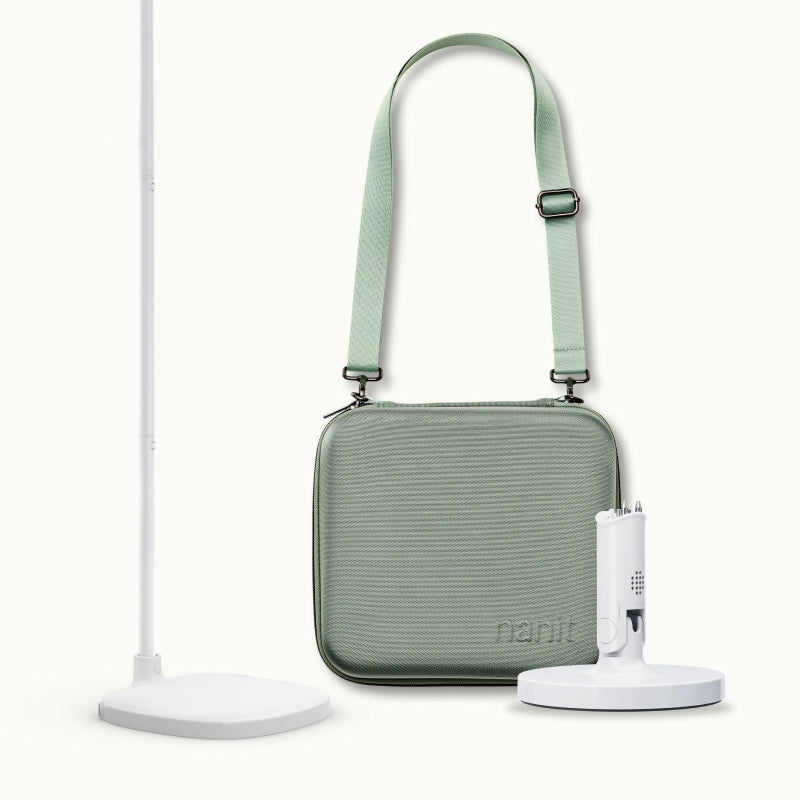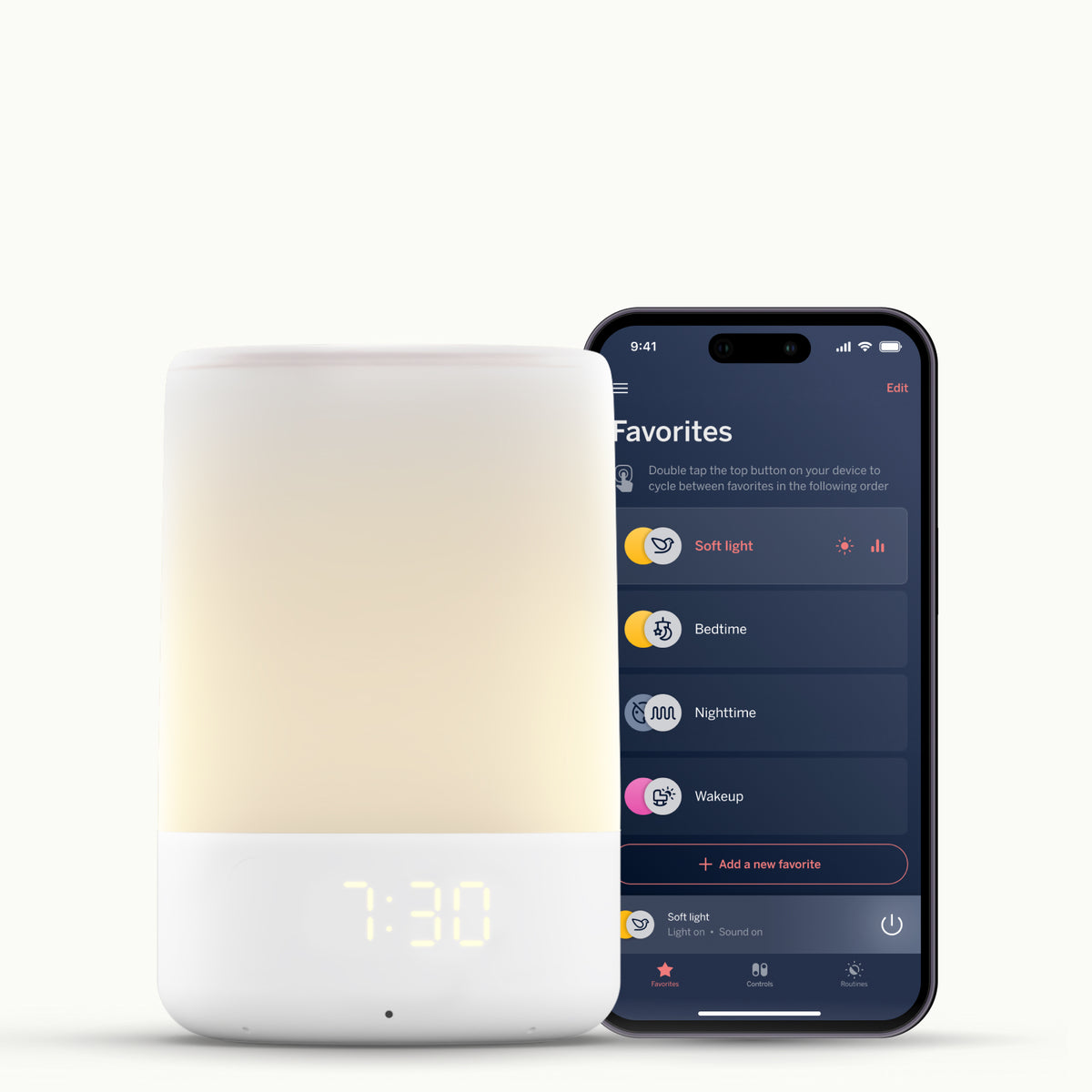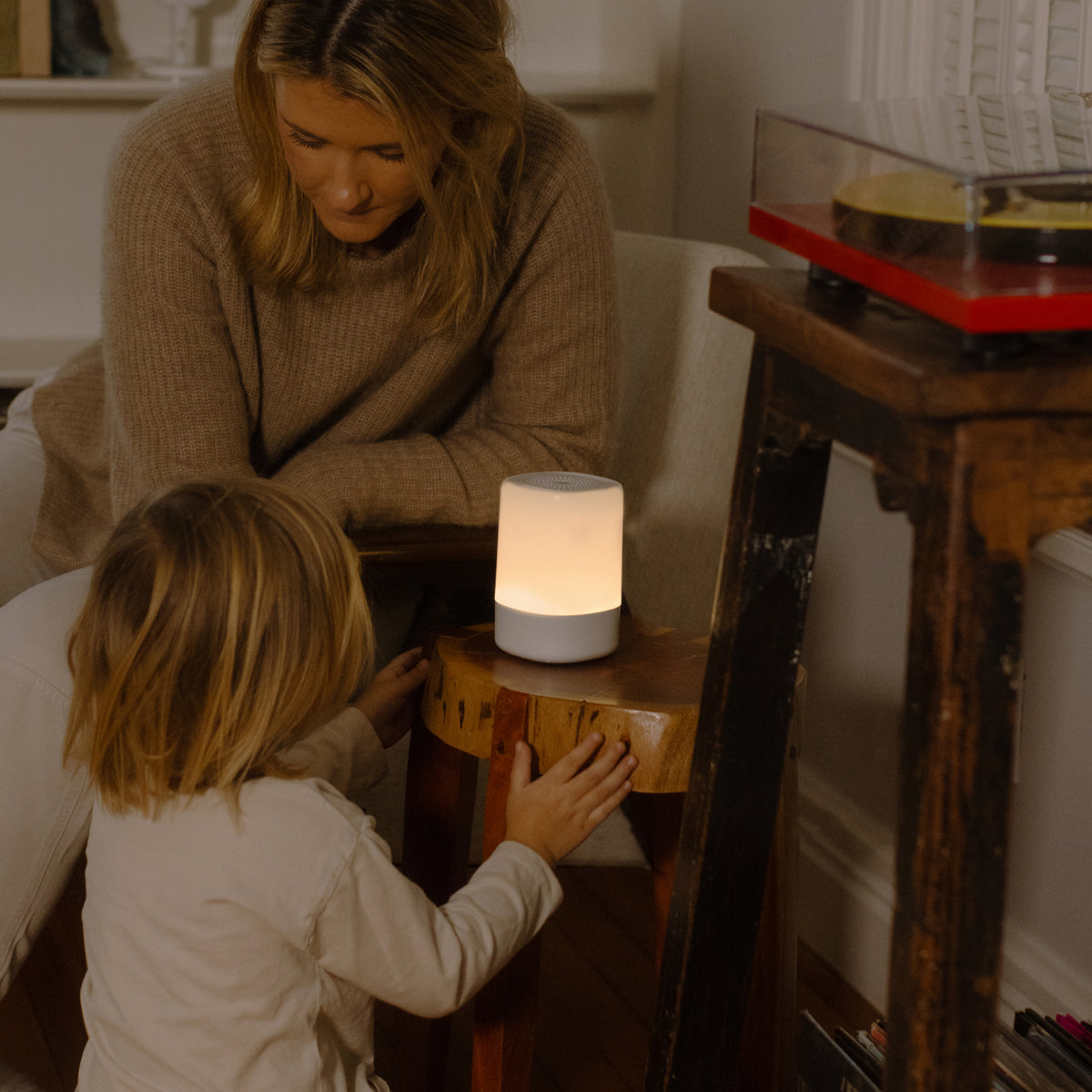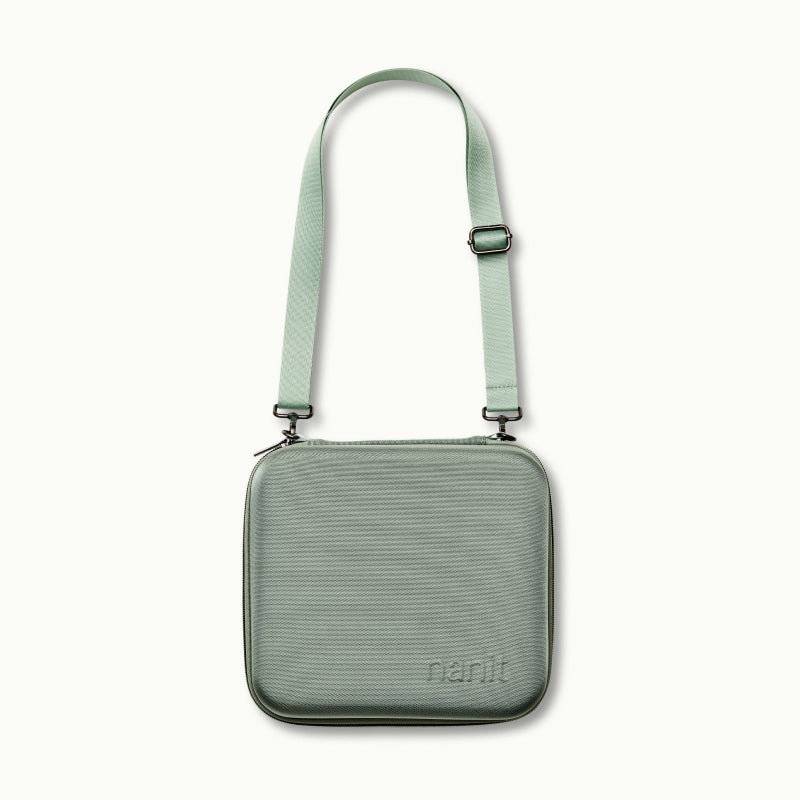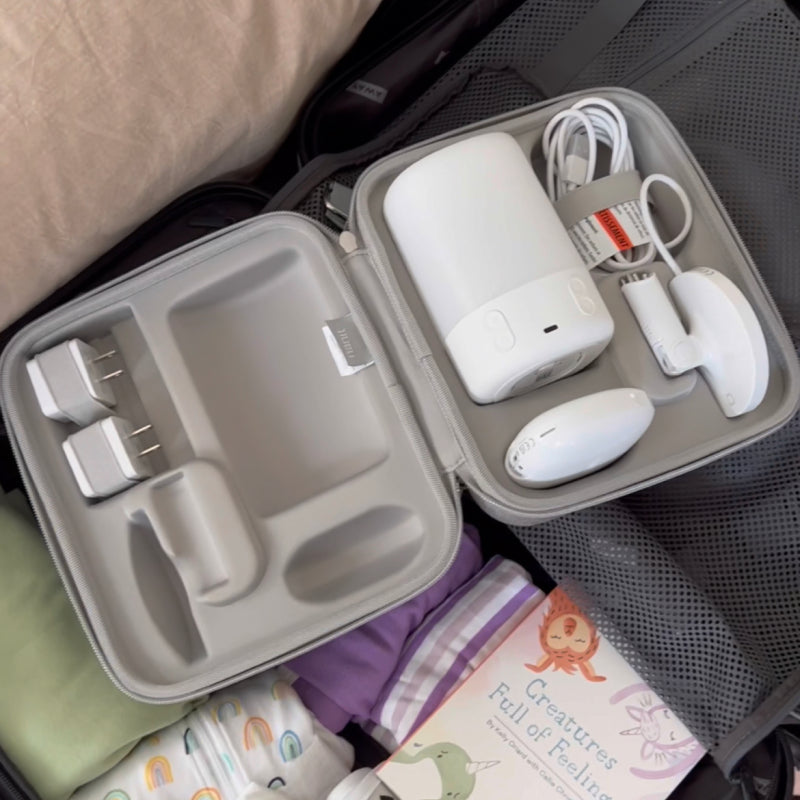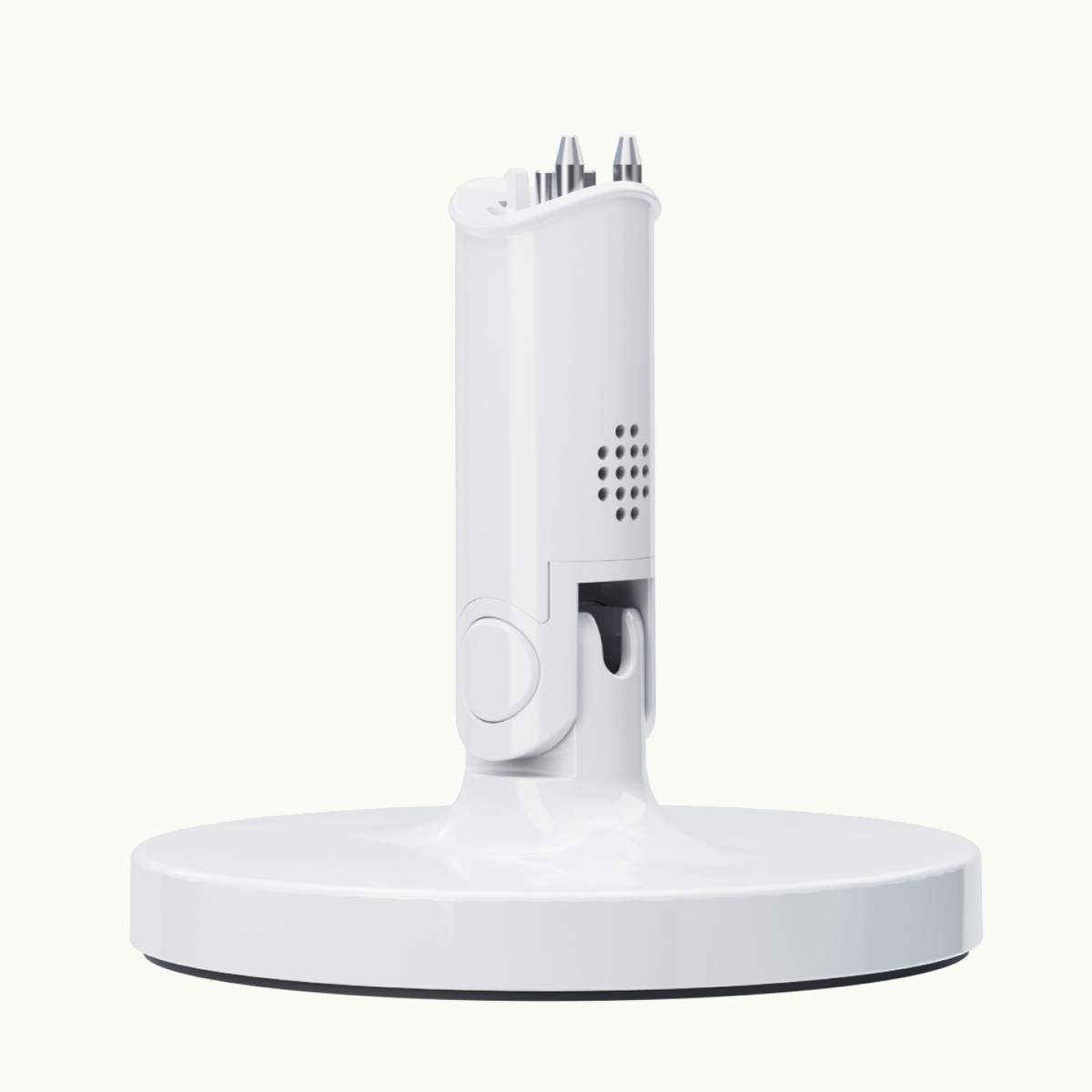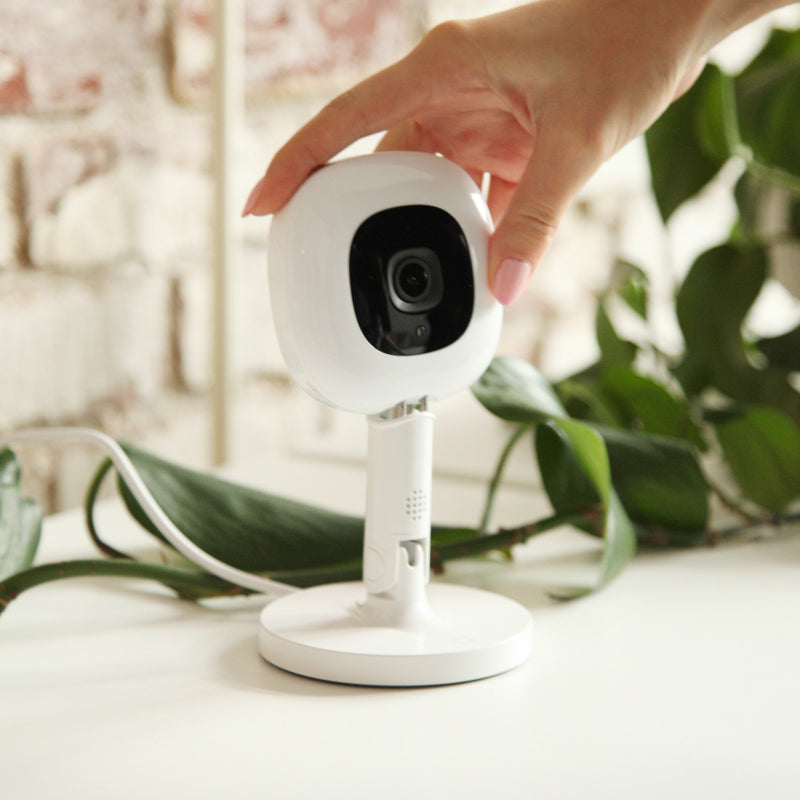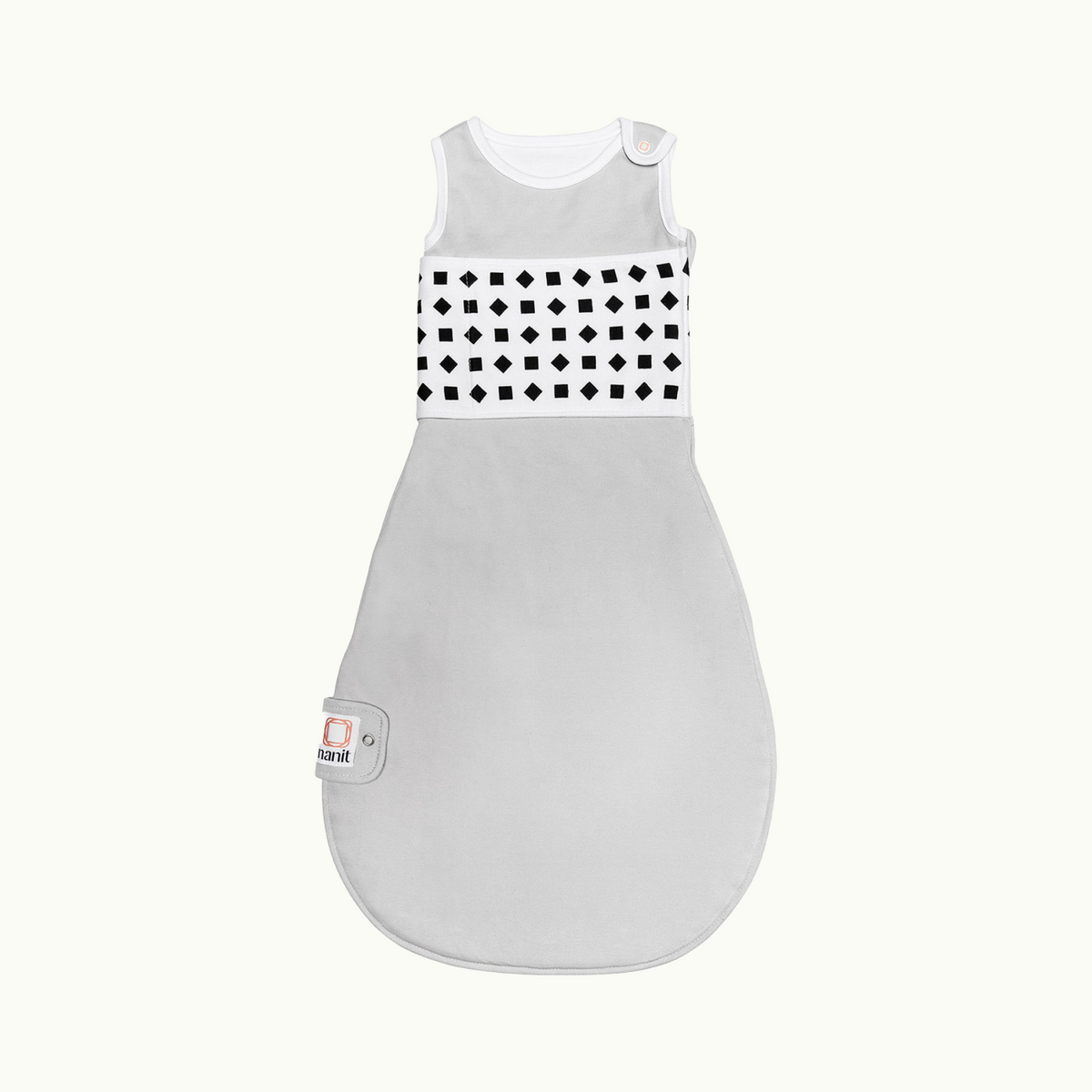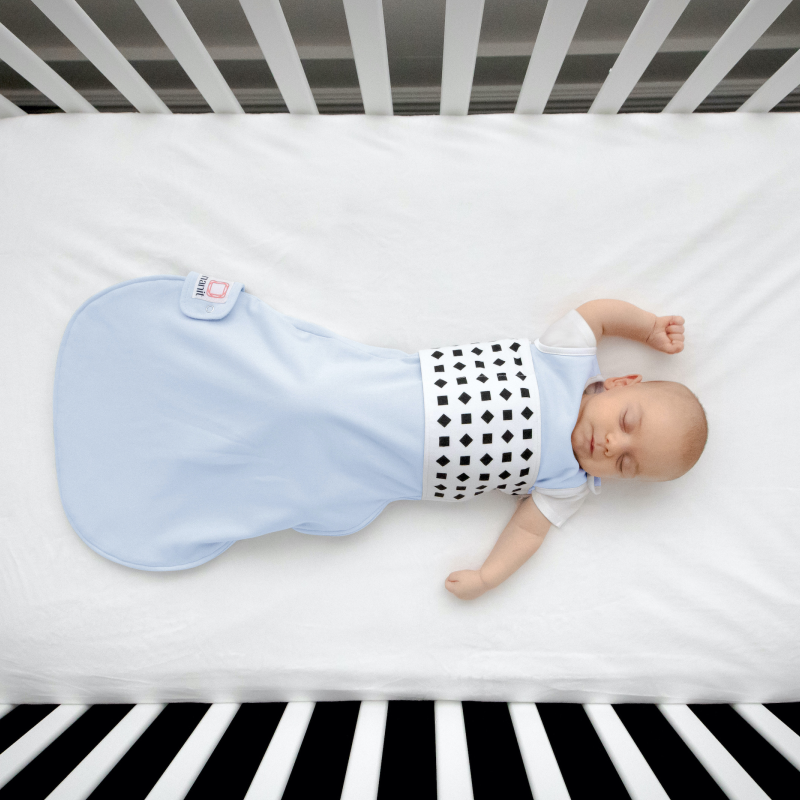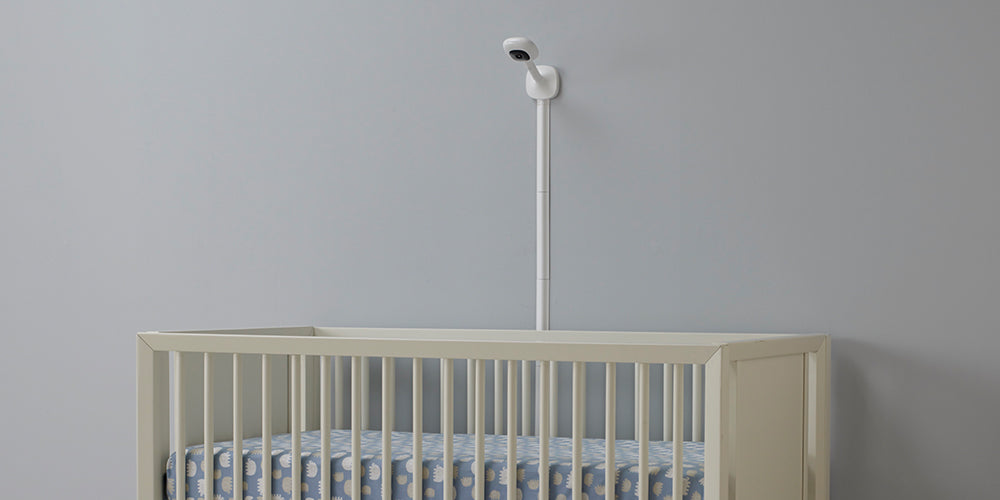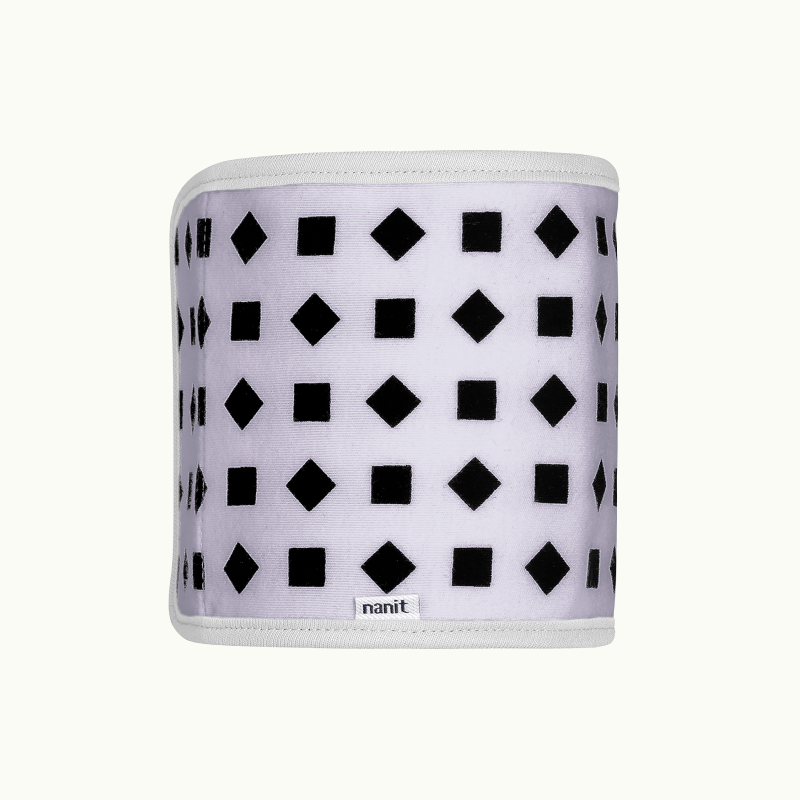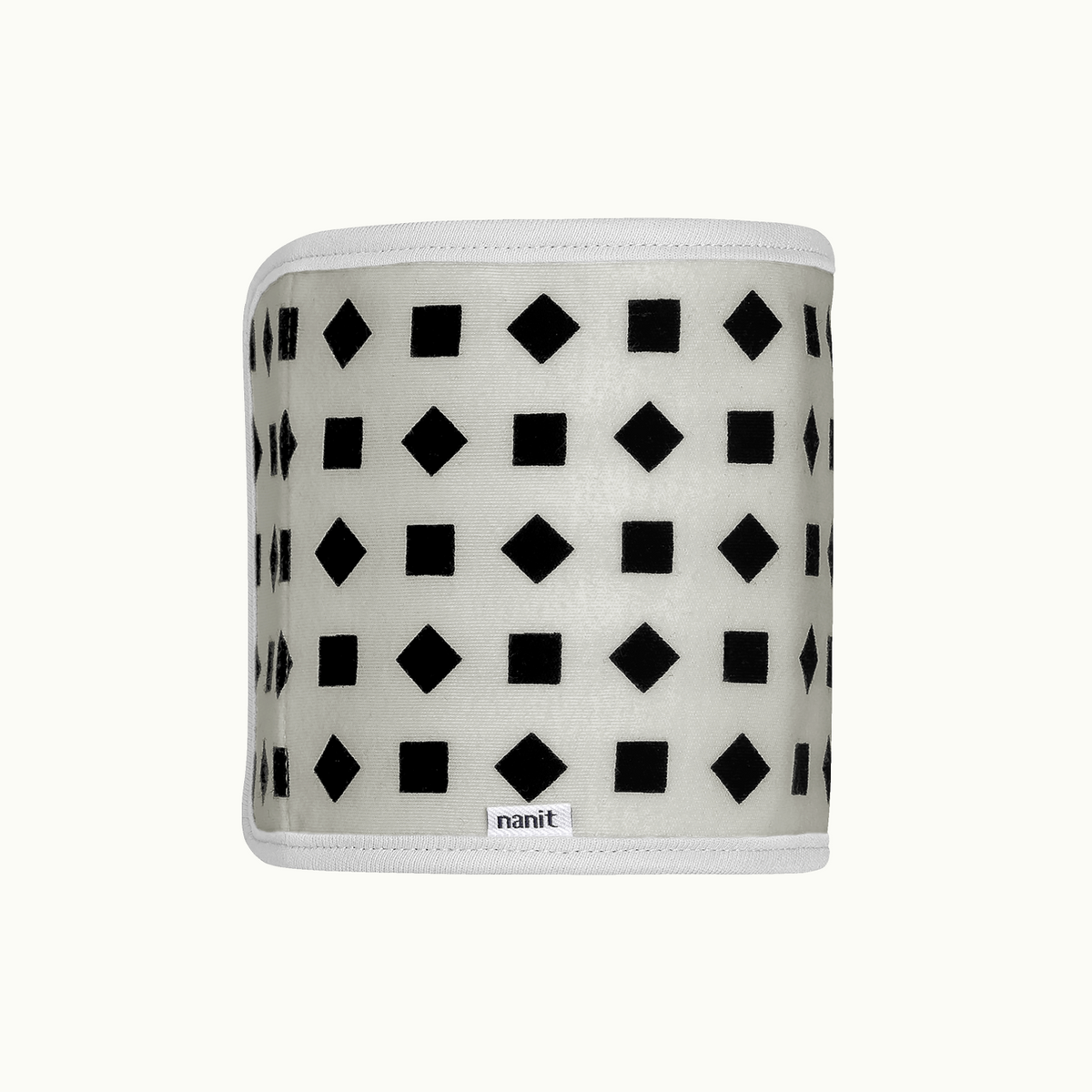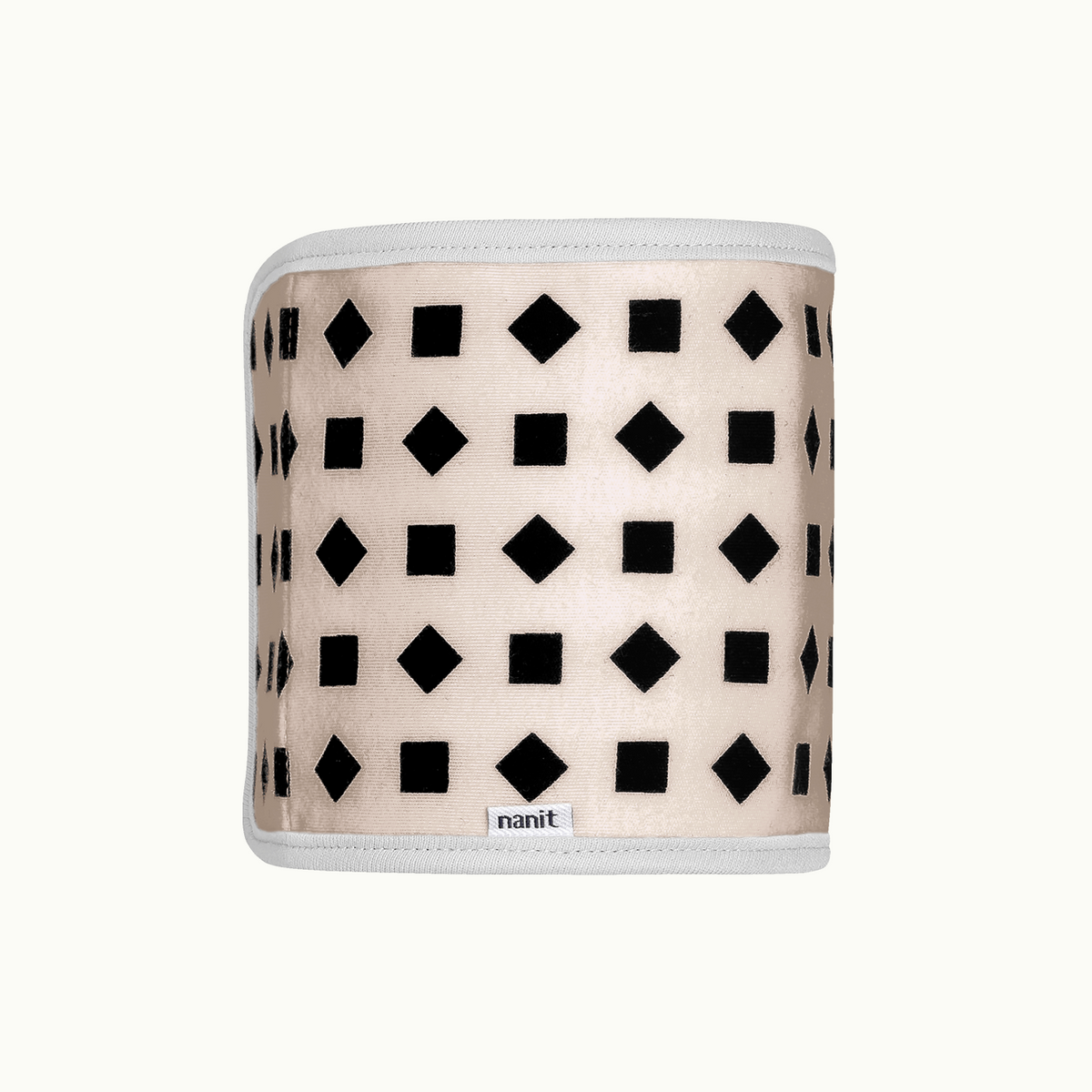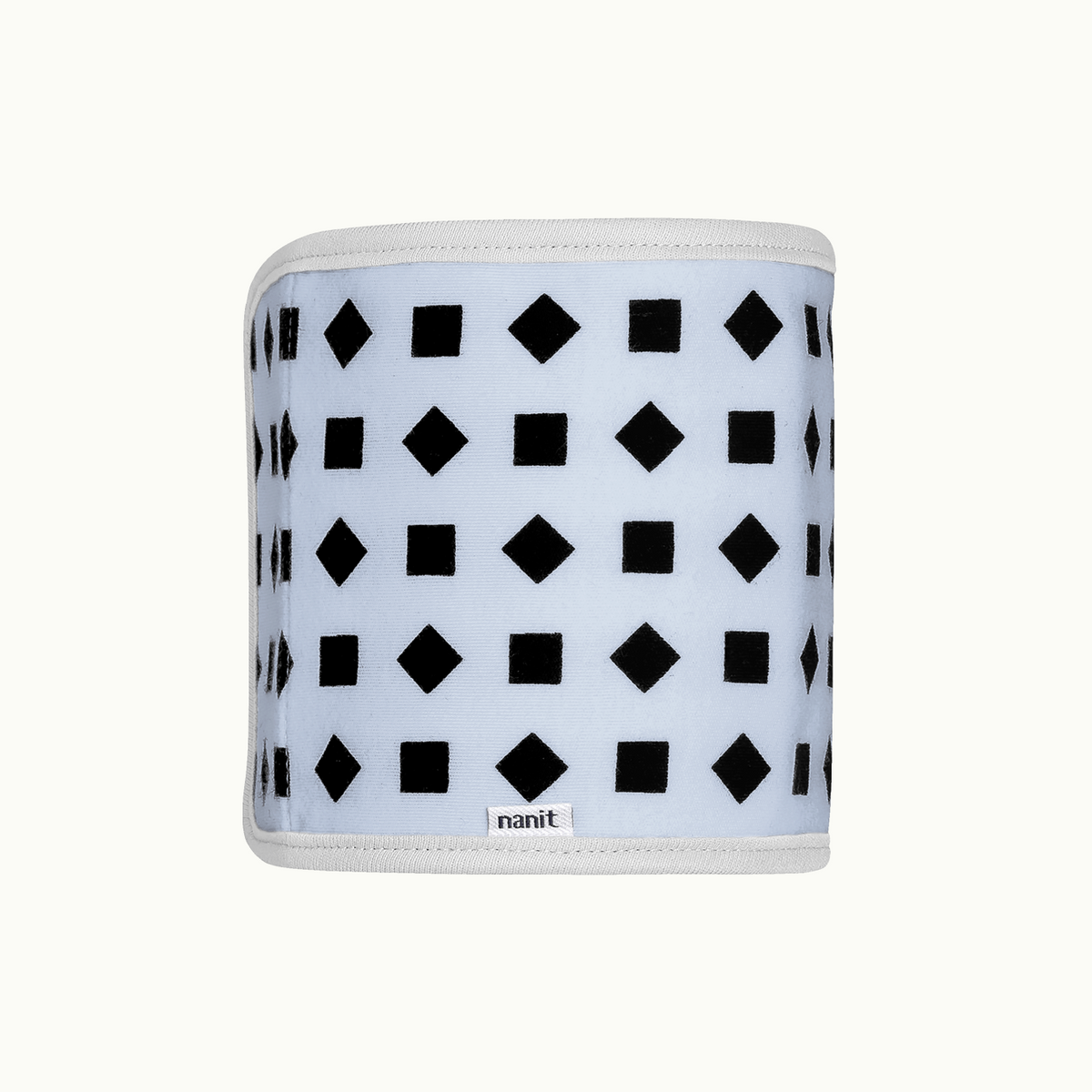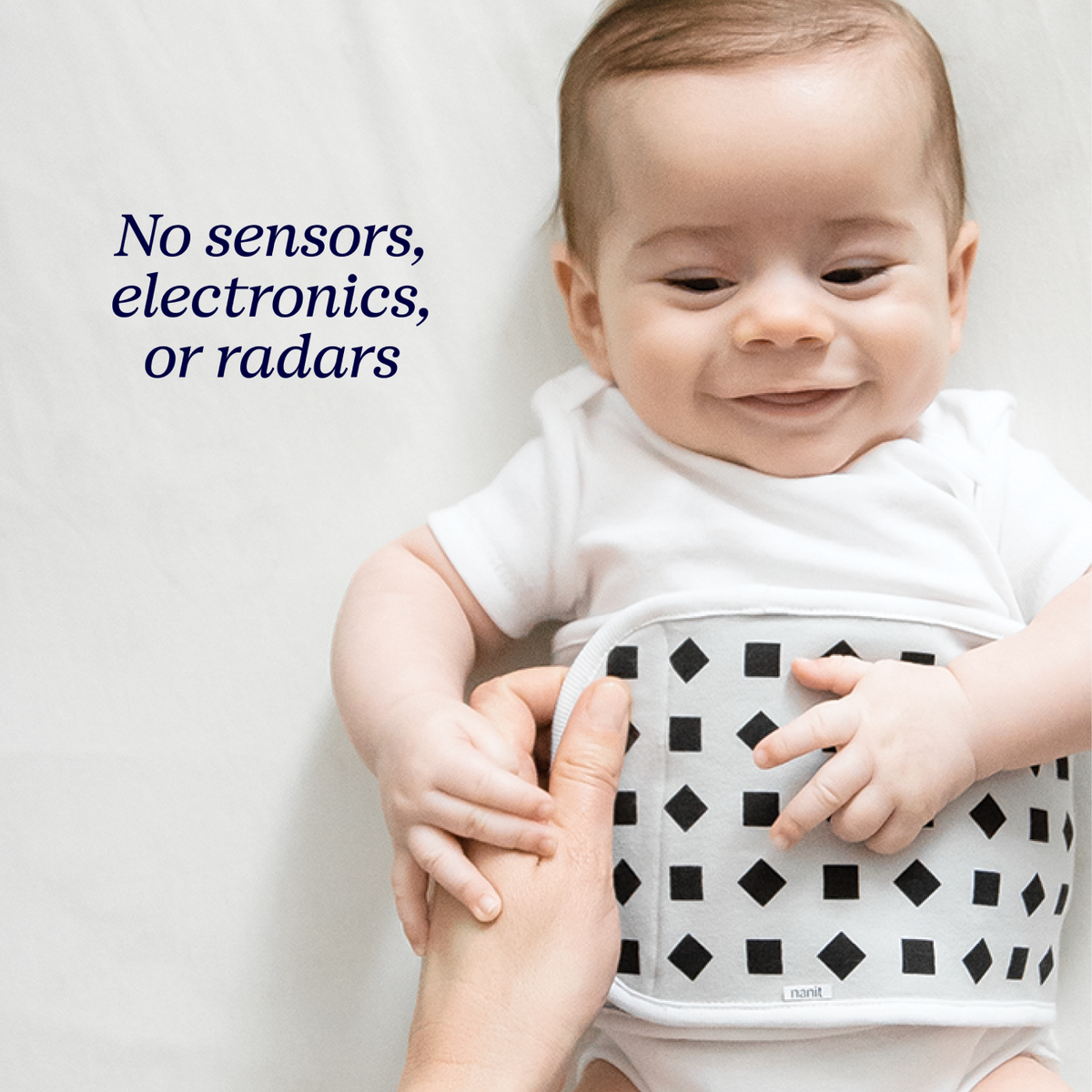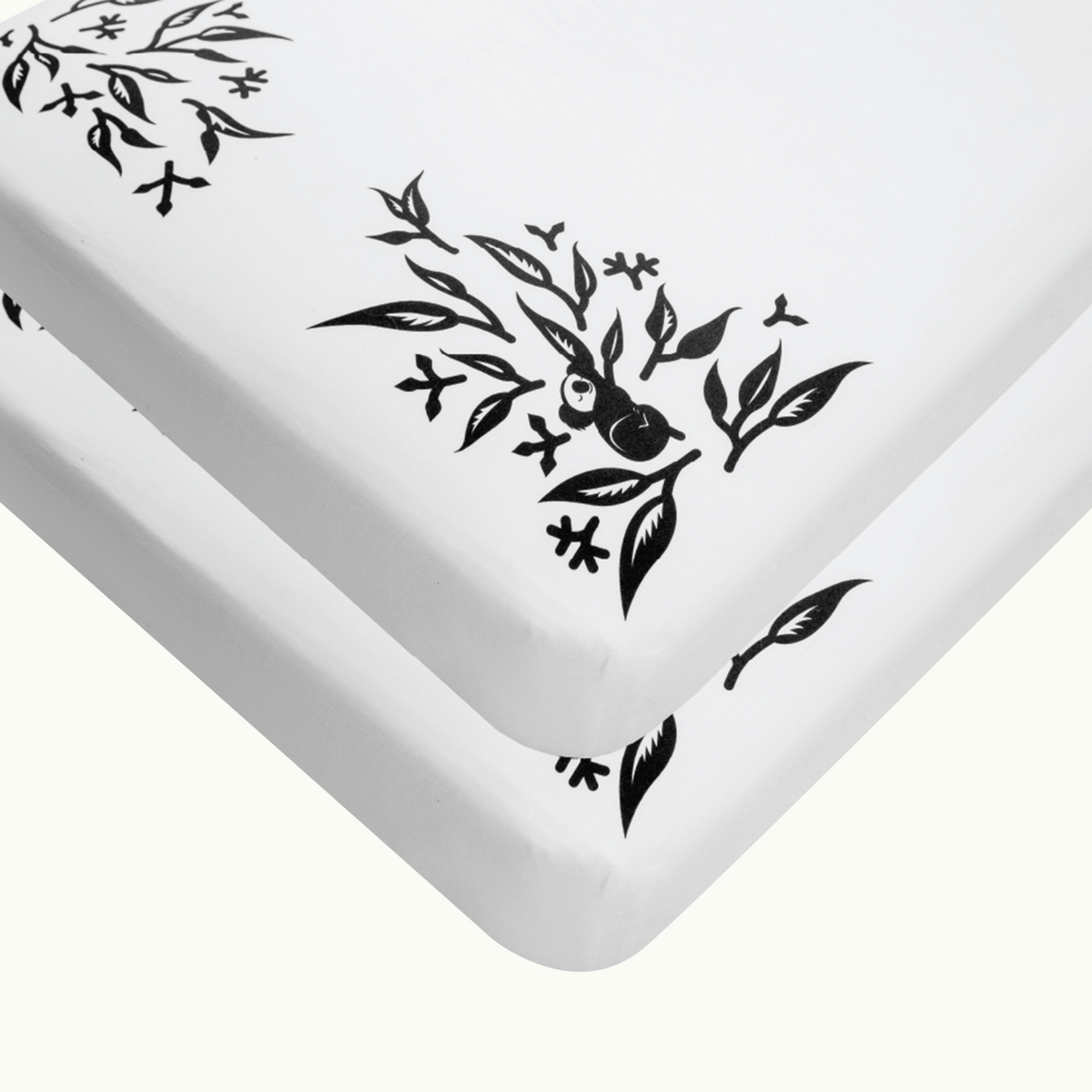By the time your child reaches the final quarter of their first year you’ll hopefully have a pro sleeper on your hands, or even better, a pro sleeper snoozing in their own bed. While there are no major sleep regressions that occur during this time, there are issues that may crop up and cause your little person to shirk sleep in favor of keeping you awake, and in their presence.
So, if you and your baby aren’t logging as much snooze time as you’d like, here are a few things that could be throwing a wrench in those zzzs, and how to fix them.
8 Month Sleep Regression – Major Gross Motor Development
Around this age, your baby is likely scooting around, crawling, pulling up on anything they can get their hands on, and maybe even walking. Not only is there a lot happening in their body, but their mind is also electric with activity as it marvels over all the new skills it gets to practice. The baby’s mind might even go so far as to tell the body to practice one of these new skills when it’s supposed to be resting.
These significant gross motor developments could exaggerate sleep issues your baby may have had in the past, like having difficulty getting their self to sleep via self-soothing, or waking frequently throughout the night.
To support your baby in getting their sleepy groove back, resist the temptation to intercede in their efforts to get to sleep. The initial path to sleep may be a bit rocky but if your baby is able to navigate it without too much help they’ll quickly find their footing.
In addition to gross motor developments, your relationship with you is shifting and will impact their ability to rest, especially when you’re out of sight.
8 Month Sleep Regression – Separation Anxiety
Your baby has now realized that you’re not a piece of them, you can leave, and you might never come back. They don’t take much pleasure in this realization, and often make their displeasure known when you’re gone, even for just a few moments.
Until your baby learns that you’re not abandoning them when they lose sight of you, they may have trouble falling asleep when you’re out of range.
But, all sleep is not lost. Take comfort in knowing there are strategies you can use to lessen your baby’s separation anxiety.
- Play peek-a-boo. This classic baby game helps your baby learn that even when they can’t see you, you still exist.
- Spend short stints away from baby. Before you need to be away from your baby for a large period of time, ease them into being separate from you by leaving them with a trusted caregiver for thirty to forty-five minutes. They’ll learn that while it might be hard to see you go, you’ll always return.
- Practice short, sweet, and strong good byes. While you might be tempted to have a drawn out and emotional good bye with your child, especially if they’re upset, seeing you emotional and nervous about leaving increases their anxiety about you leaving.
Choose a simple goodbye ritual like a kiss, hug, and cheery, “Good bye. I love you. I’ll be back soon.” Even if you’re reeling on the inside, put on a happy face for your babe. And, as you walk out of the room don’t hesitate and hem and haw over whether you should leave. Just go.
- Don’t be sneaky. It could be tempting to sneak away while your baby is happily playing with their caregiver, but when they discover you’re gone, they’ll be peeved. In addition, they won’t feel like they can trust you, in regards to appearing and departing, when you’re not upfront about what’s happening.
Even if it’s harder in the short term to move through a teary goodbye, you’re setting you and your baby up for less separation anxiety.
- Make sure baby’s basic needs are met before you leave. If your baby’s diaper is soiled, they’re hungry, they’re too hot or too cold, or some other basic comfort is not being met it will be harder for them to say goodbye. Check off all the primary boxes before leaving.
- Leave baby with a comfort item. Whether you’re saying goodbye because it’s bedtime, or you’re heading off to work, leaving your baby with a “lovey,” like a special blanket or stuffed animal, will help take the sting off your departure.
8 Month Sleep Regression – Irregularities in Baby’s World
If your baby is teething, developing an illness, or navigating any other change in their life, this could be the cause of their sleep disruptions. Play detective, noticing if anything is different and what you can do to soothe the shift.
For example, if you notice that your baby is teething you can make sure that they have safe objects to gnaw on, like a silicone teething ring. If an illness is developing, make sure they receive the proper medical care and trust that the sleep shifts will dissolve when your baby is feeling better.
8 Month Sleep Regression – Foster Good Sleep Habits
If you haven’t already, it’s essential to help your child develop good sleep habits. Begin by creating a sleep space that promotes rest: a cool and dark room with a sound machine, minimal distractions, and a safe crib. Next, follow a Eat – Play – Sleep routine where your baby eats, transitions into play, is then put down to rest, and is fed immediately after waking.
You also want to ensure that you nix any practices that make it difficult for your baby to develop self-soothing techniques. For example, if you rock your baby for thirty minutes, pat their back over and over again, or sing twenty rounds of Twinkle Twinkle Little Star before your baby will press the shut down button on their eye lids, it’s time to phase out these sleep rituals.
Many experts suggest that the ideal bedtime formula is moving through simple and calming activities like a bath and reading one book, or singing one song, then putting your baby in their bed drowsy, but not asleep. They can then take it from there by utilizing a self-soothing strategy like sucking on their hand.
The sleep issues that crop up in your baby’s first year can be confounding and exhausting, but with patience, sleuth skills, and determination you and your baby will be back to sleep in no time.
